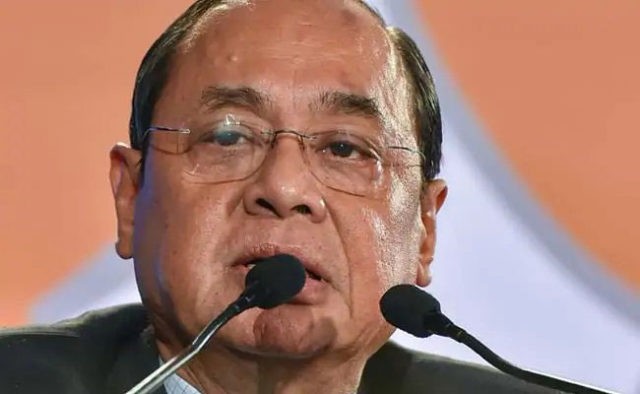
Outgoing Chief Justice of India Ranjan Gogoi, who is set to retire on November 17, will enjoy Z plus security. CJI Gogoi is likely to settle in Assam after his retirement.
The security of the CJI and four other judges was beefed up ahead of the delivery of Ayodhya verdict.
According to a report ET, Assam police has been entrusted with the security arrangement for Gogoi’s ancestral home in Dibrugarh and another house in Guwahati.
Talking to ET on condition of anonymity, a senior police official said that the department has received a communication from the Union home ministry according to which the CJI’s security cover has been upgraded to Z plus. He further said that they are making all the required arrangements as Gogoi is likely to stay in Guwahati once he retires.
The Centre had upgraded Gogoi’s security to Z plus ahead of the politically sensitive Ramjanmabhoomi-Babri Masjid land dispute case.
Gogoi had headed the five-member Constitution bench that concluded the hearing of the case on October 16 and delivered the final verdict in the title suit on November 9. The other members of the bench were Justices SA Bobde, DY Chandrachud, Ashok Bhushan and SA Nazeer and their security cover was upgraded as well.
The Z-plus security cover is one of the highest in the country and is provided by one of the Central Armed Police Forces (CAPFs) and ideally, the Central Reserve Police Force (CRPF) is entrusted with providing the security of the dignitary.
Passing the verdict, the five-judge bench had said that the underlying structure was not of Islamic origin adding that the foundation of the disputed structure rests on the walls of the underlying structure.
The Muslim side had argued that the underlying structure could have been of Islamic origin. However, the apex court rubbished this claim, saying that the artefacts, including architectural fragments which have been recovered during excavation, have a distinct non-Islamic origin, IANS reported.
The judgment was unanimous judgement, and the five-member bench directed the Centre to form, within three months, a trust to construct a temple at the disputed site in Ayodhya.
Meanwhile, the Jamiat Ulama-e-Hind (JuH), a key Muslim litigant in the Ayodhya title suit, has decided not to accept the five-acre alternative land for building a mosque.
The Ayodhya verdict generated mixed reactions from political parties with AIMIM President Asaduddin Owaisi terming the judgment as a victory of "faith over facts" adding that the Supreme Court is "supreme but not infallible".


.jpeg)

